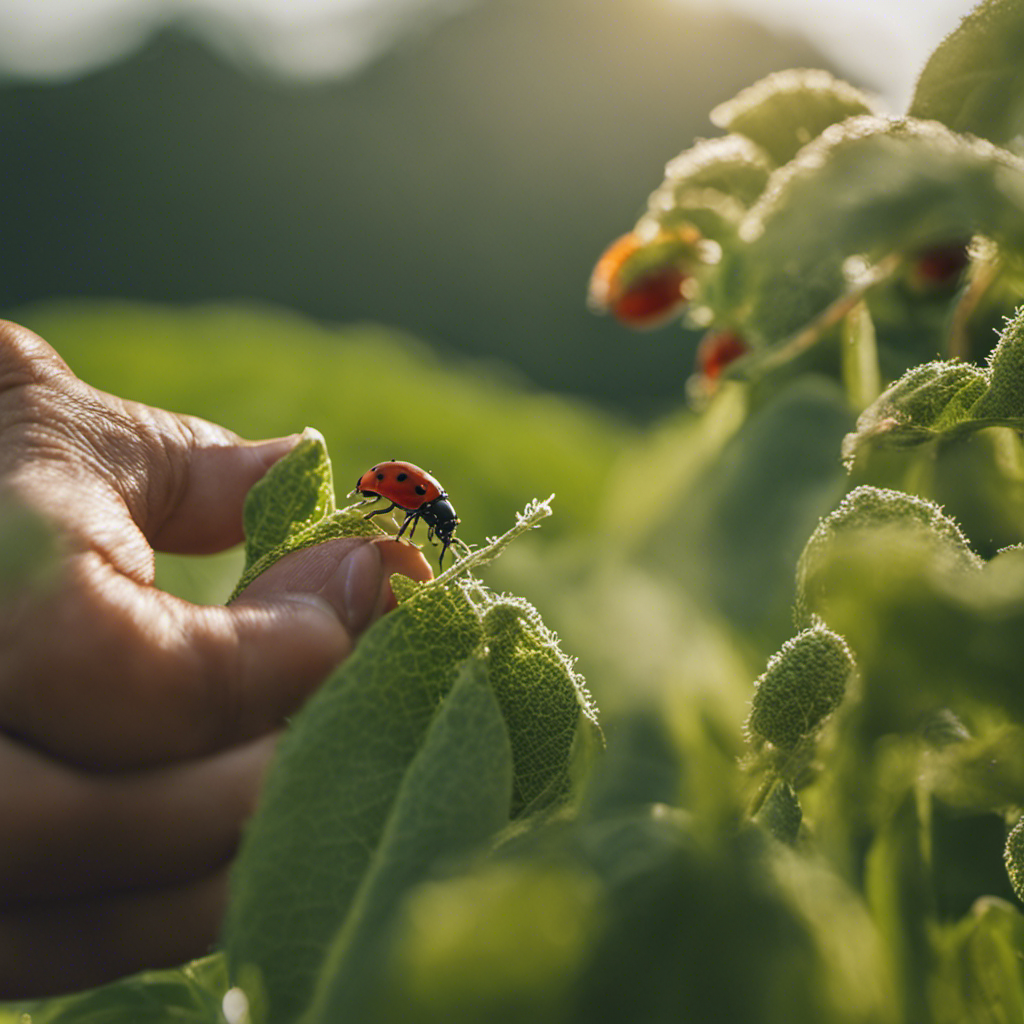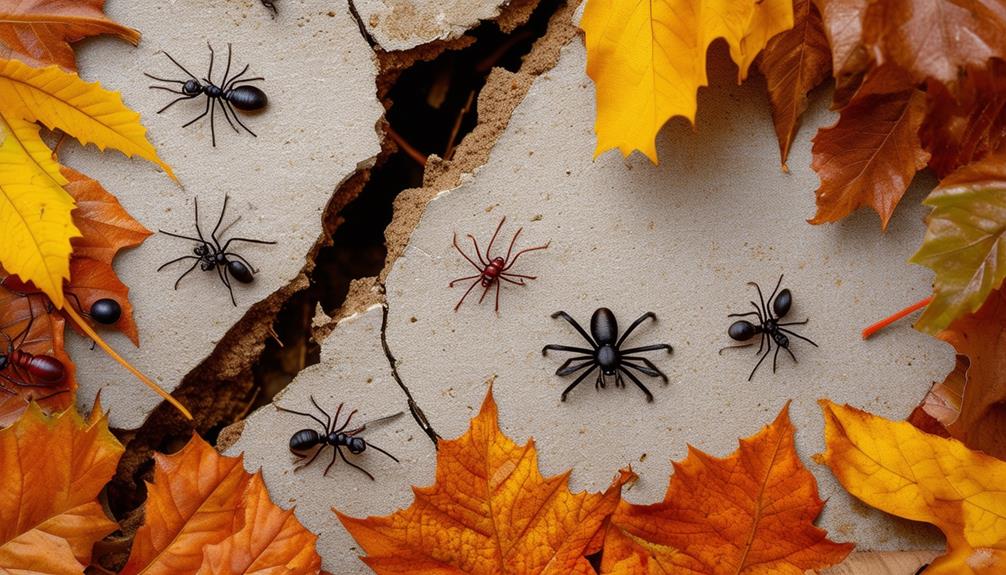Organic farmers face unique challenges when it comes to pest control. With a focus on sustainability and environmental stewardship, they must find effective methods that do not compromise the health of their crops or the surrounding ecosystem.
This article explores the strategies and practices employed by organic farmers to manage pests, including cultural practices, biological control methods, and the use of organic pesticides.
By understanding these approaches, farmers and individuals interested in sustainable agriculture can gain insights into how to protect their crops while minimizing negative impacts on the environment.
Key Takeaways
- Organic farmers use cultural practices such as soil management, companion planting, intercropping, and maintaining healthy soil to control pests.
- Crop rotation and diversification are important strategies used by organic farmers to disrupt pest life cycles, attract different pests, improve soil health, and minimize the need for chemical pesticides.
- Biological pest control is a sustainable and environmentally friendly alternative to synthetic pesticides, where beneficial insects and natural predators are utilized to prey on pests and encourage biodiversity.
- Integrated Pest Management (IPM) is a holistic approach that combines various methods, including biological control, crop rotation, sanitation practices, and resistant plant varieties, to control pests in an environmentally friendly manner and reduce reliance on synthetic pesticides while preserving ecosystem balance.
Essential Cultural Practices
Essential cultural practices play a crucial role in the pest control strategies employed by organic farmers.
One of the key practices is soil management. Organic farmers understand the importance of healthy soil for pest control. They focus on building soil fertility through methods such as composting, cover cropping, and crop rotation. These practices not only improve the overall health of the soil but also enhance its ability to resist pests and diseases.
Additionally, organic farmers utilize companion planting techniques. They strategically plant certain crops together to maximize their pest control abilities. For example, planting marigolds alongside tomatoes can deter pests like nematodes. Similarly, intercropping certain plants can confuse insects and reduce their ability to locate their target crops.
Crop Rotation and Diversification
Crop rotation and diversification are effective strategies used by organic farmers to control pests and maintain the health of their crops. These practices involve alternating the types of crops grown in a specific area over time and cultivating a variety of crops simultaneously.
By rotating crops, farmers can disrupt the life cycles of pests and reduce their populations, as different crops attract different pests. Additionally, diversifying crops cultivates a healthier soil environment. Some crops naturally improve soil health by fixing nitrogen or increasing organic matter. Others release compounds that repel or deter pests.
Organic farmers also prioritize planting pest resistant varieties, which are naturally more resilient to common pests and diseases. This combination of crop rotation and diversification helps ensure the long-term sustainability and productivity of organic farming while minimizing the need for chemical pesticides.
Biological Pest Control
Utilizing beneficial insects and organisms, as well as implementing natural predators, is a key strategy in biological pest control for organic farmers. Instead of relying on synthetic pesticides, organic farmers adopt biological control methods to manage pests in a sustainable and environmentally friendly way.
These methods involve introducing beneficial insects like ladybugs, lacewings, and parasitic wasps, which prey on pests such as aphids and caterpillars. Additionally, organic farmers encourage biodiversity by creating habitats that attract natural predators like birds and bats.
Another approach to biological pest control is the use of pest resistant crops. These crops are genetically modified to produce toxins that are harmful to specific pests, reducing the need for chemical pesticides.
Integrated Pest Management (IPM)
One effective approach that organic farmers adopt for pest control is by implementing integrated pest management (IPM) strategies.
IPM is a holistic and sustainable pest management approach that combines various methods to control pests in an environmentally friendly manner.
It involves the use of biological control methods, such as introducing beneficial insects or predators to control pest populations naturally.
Additionally, IPM focuses on preventive measures, such as crop rotation, sanitation practices, and the use of resistant plant varieties, to minimize pest infestations.
By integrating these different strategies, organic farmers can effectively manage pests while minimizing the use of synthetic pesticides.
This approach promotes long-term sustainability by reducing the reliance on chemical inputs and preserving the natural balance of ecosystems.
Natural Predators and Beneficial Insects
The use of natural predators and beneficial insects is a common method employed by organic farmers for pest control. These farmers understand the importance of maintaining a balanced ecosystem and utilize natural pest control methods to manage their crops effectively.
Natural predators such as ladybugs, lacewings, and spiders are introduced into the fields to prey on harmful insects, reducing their population naturally. Additionally, beneficial insects like bees and butterflies play a vital role in pollination, ensuring healthy crop growth.
Organic Pesticides and Sprays
Employing natural substances and incorporating sustainable practices, organic farmers control pests through the use of organic pesticides and sprays. These organic pest control methods are eco-friendly alternatives to conventional chemical-based pesticides.
Instead of relying on synthetic chemicals, organic farmers utilize naturally occurring substances, such as plant extracts, essential oils, and beneficial bacteria, to combat pests. These organic pesticides and sprays target specific pests while minimizing harm to beneficial insects and the environment. They break down quickly, leaving behind no harmful residue.
Organic farmers also employ cultural practices, such as crop rotation, intercropping, and habitat manipulation, to deter pests naturally.
Frequently Asked Questions
Can Organic Farmers Use Synthetic Pesticides if They Face a Severe Pest Infestation?
Organic farmers facing severe pest infestation may use synthetic pesticides as a last resort. However, they prioritize using synthetic pesticide alternatives and organic pest control methods, such as crop rotation, biological control, and the use of beneficial insects.
What Are Some Common Challenges Faced by Organic Farmers When Implementing Integrated Pest Management Practices?
Challenges faced by organic farmers when implementing integrated pest management practices include limited options for pest control, increased labor requirements, and potential yield losses. However, solutions such as crop rotation, beneficial insects, and trap crops can help mitigate these challenges.
How Do Organic Farmers Attract and Maintain Populations of Natural Predators and Beneficial Insects on Their Farms?
Organic farmers employ various methods to attract and maintain populations of natural predators and beneficial insects on their farms. By creating suitable habitats, using companion planting, and implementing crop rotation, they enhance biodiversity and promote natural pest control methods.
Are There Any Specific Organic Pesticides and Sprays That Are More Effective Against Certain Pests Compared to Others?
Organic pesticide alternatives can be more effective against certain pests compared to synthetic pesticides. Factors such as pest type, environmental impact, and target specificity influence the choice of organic pesticides for pest control in organic farming.
Can Organic Farmers Achieve the Same Level of Pest Control as Conventional Farmers Using Organic Methods Alone?
Organic farmers can achieve effective pest control using organic methods alone. While conventional farmers may rely on synthetic pesticides, organic farmers employ various approaches such as crop rotation, natural predators, and cultural practices to control pests without compromising environmental and consumer health.





